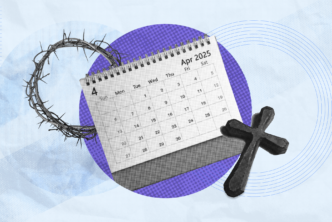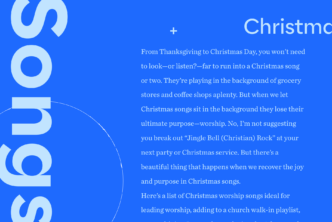When coronavirus hit, churches scrambled. Those that weren’t online figured out solutions fast, and those that already were online embraced remote church as a new normal. Since then, churches have worked tirelessly to ensure their congregations can continue meeting for weekly services, Bible studies, and the like (albeit online) and that people feel as connected as possible.
And things seem to be working.
Online services and meetings might be going swimmingly, but have faith communities been able to maintain Bible engagement during the coronavirus?
Not so much.
On July 22, American Bible Society and Barna Group released the 10th Annual State of the Bible report, and the information is sobering. Bible engagement has declined amid the coronavirus outbreak, pointing to a clear relationship between Scripture engagement and in-person church participation.
According to American Bible Society president and CEO Robert Briggs, Bible engagement was already experiencing a downward trend. But the July 2020 study revealed that trend has accelerated since January 2020.
Briggs states:
The study shows a direct correlation between increased Scripture engagement and those efforts typically organized by a church, including mentorship programs and small group Bible studies. Church closures due to COVID-19 are, therefore, likely contributing to decreased rates of Scripture engagement.
1But it’s not all bad news. In fact, Briggs sees it as a huge opportunity for Christian organizations to make an impact on Bible engagement.2
What is Bible engagement?
Bible engagement is more than attending church services or even reading the Bible. Dr. Fergus McDonald, past general secretary of National Bible Society and United Bible Societies, says it is
. . . interaction with the biblical text in a way that provides sufficient opportunity for the text to speak for itself by the power of the Holy Spirit, enabling readers and listeners to hear the voice of God and discover for themselves the unique claim Jesus Christ is making upon them.
3It’s the process of diving deep into Scripture, turning verses and passages around in our minds like bingo numbers in a round, metal cage, and letting them drop from our heads to our hearts. By sifting through and processing God’s Word, we come to experience the author in a profoundly personal way.
We come to know God intimately, and through the process, we are changed. And according to the study, this transformation most often occurs when relational church engagement goes up. American Bible Society Director of Ministry Intelligence Dr. John Farquhar Plake says, “It’s probably the relationships people have with one another through the church that really make the difference.”4
It’s time to reverse the trend
Now more than ever, it’s paramount that churches commit to reversing this downward trend. The Church must “transition from ‘survival’ mode back into ‘discipleship’ mode,”5 says Briggs.
But in a coronavirus world, discipling people toward this type of engagement with the Word of God and each other will take a bit of innovation.
And Faithlife has the tools to help your church do just that.
Faithlife, the world’s first integrated ministry platform, helps churches shift from disconnected discipleship to a biblically rooted, step-by-step discipleship strategy—whether your church expects to hold in-person gatherings next week or next year. It puts a wealth of biblical resources within reach for your entire congregation, from a Bible study app to devotionals and small group Bible study guides to theology courses.
Bible engagement is critical for growing a healthy congregation in any season and must not be paused because of today’s crisis. The current pandemic might make the task seem daunting—but you don’t have to go at it alone.
Related article
Biblical Literacy: What It Is and How to Reverse the Decline
- ABS News Blog, “American Bible Society Releases 10th Annual State of the Bible Survey,” July 22, 2020.
- “State of the Bible Survey,” 2020.
- Dr. Fergus Macdonald, Taylor University Center for Scripture Engagement
- “State of the Bible Survey,” 2020.
- “State of the Bible Survey,” 2020.





